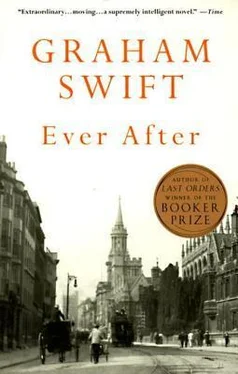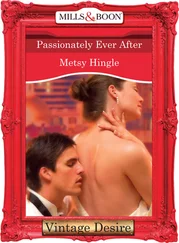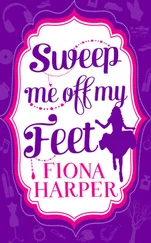I don’t know if my grandmother turned up also for my christening (that dubious ceremony). I suspect not. At any rate, she was never to be a presence in my life. Two years after my birth and only some two years before my uncle Jim met his end (yes, death sometimes comes a-knocking with a vengeance), she and her erstwhile lover, now husband of some years, died simultaneously in a car accident on the corniche road of the Cote d’Azur (“Tragic, sweetie, but a stylish way to go”). One should resist the thought that my grandfather may then have settled more easily in his own grave. One should resist these poetic pay-offs, these dramatic strokes and flourishes. Life isn’t a theatre, is it? Life is a back-stage business. A struggle for existence.
But to return to the West Country and the mid-1860s. It is clear from Matthew’s farewell letter from Plymouth that the days of the “Kingdom of Copper” were numbered. Matthew had been right. Neale should have hedged his commercial bets. It seems that scarcely had the Pearce brothers been co-opted into the mining business by their stepfather than the copper market, booming for some twenty years, fell crashing around them. Neale never bought back his arsenic licence and, having pushed the boat out to impress and provide for his new wife (I imagine some white-fronted villa, a gravel sweep, a backdrop of dark, shielding trees), must have thrown himself on Benson’s mercy. Benson, we may take it, weathered the interruption of the American Civil War, which, while it reduced the human population, presumably allowed boll-weevils to thrive. He must have looked smugly yet pityingly on Neale. What saved them all, as it saved many an ailing copper mine, must have been arsenic. They were kept alive by poison.
I know little of the subsequent history of the Wheal Talbot mine. My mother, speaking out of the dim recesses of family lore, never used that name and only referred to it contemptuously — as if her great-uncles, Lucy’s brothers, were never more than doomed adherents to a lost cause (crazed, unshaven prospectors) — as “some wretched little tin mine in Cornwall.” My mother was capable of getting facts wrong. But I like to think that in that confusion of metals there was a degree of truth. That the brothers recalled their father’s insistence that tin deposits almost certainly lay beneath the Wheal Talbot copper and that Neale should dig for it while he could. Did they miss their father — his sound surveyor’s advice, his nose for geology, his feel for the secrets of the earth?
But if they found tin they would not have enjoyed its benefit for long. Tin was to crash in the early Nineties. Even arsenic slumped at the turn of the century. Wheal Talbot was abandoned. Elizabeth Neale, formerly Pearce, née Hunt, and by this time a widow, died in 1906, unaided by poison, but assisted, quite possibly, by the gall of memory: those days at Burlford; those days of honey and constancy, when this world, this other world of deceitful metal, lay all beyond the hill.
And the Rector? The would-be missionary who had come to a quiet Devon valley, seen the village, the church and the rectory and seen that they were good, and seen as the only shadow upon a comfortable living the onus of being an Anglican cleric in Methodist-infiltrated territory, could little have guessed at the changes he would witness in these seemingly unchangeable surroundings. That the little nearby town of Tavistock would become, depending on how you looked at it, a modern Eldorado, a satanic gambling-den in which the stakes were dividends and miners’ bellies — a crowded enclave of avid, abused humanity. That in his old age it would be part of his pastoral charge — the would-be missionary indeed — to visit the dismal hovels of the starving and cholera-ridden.
Did his fears persist of that undermined world, waiting to collapse into infernal darkness? Did he have thoughts akin to Matthew’s?
19th March 1856:
These toiling masses of our mine-workers trouble me. Because in the habitat of their workplace they do indeed appear as so many termites labouring in the dark and occupying a literal subexistence, we convert the appearance into substance. But by what perverted definition of common humanity do we pronounce that they are brutes and not we?
And what, in the end, would he have judged to have been worse? His son-in-law’s defection to the forces of godlessness? Or his daughter’s rush — with his blessing, oh yes, with his politic blessing at the time — into the arms of Mammon, that false god that it was his duty to denounce in his sermons?
And what comfort had it brought her?
This search for buried treasure. This fever of the mines. The hills and vales of the south-west are still, apparently, sprinkled with the forlorn chimneys, the ruined engine-houses and overgrown waste-heaps of old mines. With the wind sighing around them, they have acquired, no doubt, a soulful effect, like the rusting hulks of old locomotives.
This alchemical quest to turn base metals into pocketable gold. This search, if not for the real thing, then for the substitute thing, the thing that, perhaps, will do just as well. The money. The money. First copper, then tin. Then — O heir of the Ellisons! O fully lifelike model fresh from the factory of the dead! — plastic.
And Matthew? And Matthew — gone on his soulless way? Throughout these years — or for part of them — in which the market in ore peaked then fell, we must assume he was living in Launceston, where he ministered to the ailing John Pearce and weaned him off the bottle. A Christian enough picture for a man who had forsaken Christianity. Did he attempt to revive his father’s neglected clock-making business? Did he — could he? — practise still as a surveyor? Did he endure a barrage of gossip, both on his father’s account and on account of his former, dissolved marriage; and did his father, who at one time, in his cups, had rebuked his son for not having become a famous man, ever chuckle over the rueful joke that at least they were reunited, now, in mutual ignominy?
He never wrote another word in the Notebooks. Not one word. But he preserved them. Why? Did he ever show them to his father? No, I think not. Not to the man who had once kept him ruthlessly at his school books and who only in his last hours yielded up a supposedly lost Bible. They both had things, this father and son, they thought it best to keep from each other.
And when John Pearce, creator of the original, ticking wedding gift, breathed his last, Matthew kept the Bible, as well as the Notebooks. Both were with him when he wound up his affairs in Launceston and travelled to Plymouth, thence to voyage to the New World. Then on that last night, as the Atlantic drizzle drenched Plymouth, he sent the Notebooks to Elizabeth, but held on to the Bible.
Question: did she or didn’t she — with Neale, even before that afternoon of the bees? The birds and the bees. Question: did she stop loving him, as (so she believed, let’s suppose) he had stopped loving her? Or did she love him still, even as the price of copper plummeted, even as Matthew looked his last on England?
Forget the other stuff. Stick to the love-interest. The ever-popular love-interest. What the audience wants. When all is said and done and the meaning of the universe has been fully squeezed dry, Hamlet sees Laertes usurping Ophelia’s grave (these dramatic strokes), picks a fight with him, spikes himself on a rapier and so achieves in the heat of the hour what he might have achieved, with a bare bodkin, after much exhausting philosophical deliberation. Matthew quits Burlford, to return to his birthplace. And Elizabeth quits Burlford, to marry into copper. Years later, she receives a package.
She kept them. (What did she do — hide them from Neale?) She kept them, persuaded or not by Lucy. And kept the letter too. Would she have replied? But he left no forwarding address. He wished to disappear. And he did, he did. So would she have kept them anyway, or was it only that other news, that would have reached her not long afterwards — news not from but of her former husband — that decided her?
Читать дальше












